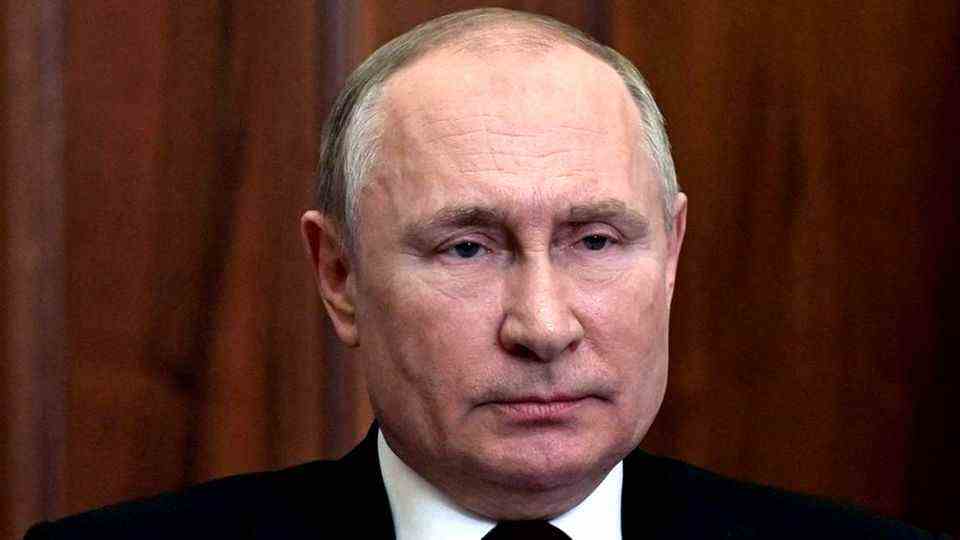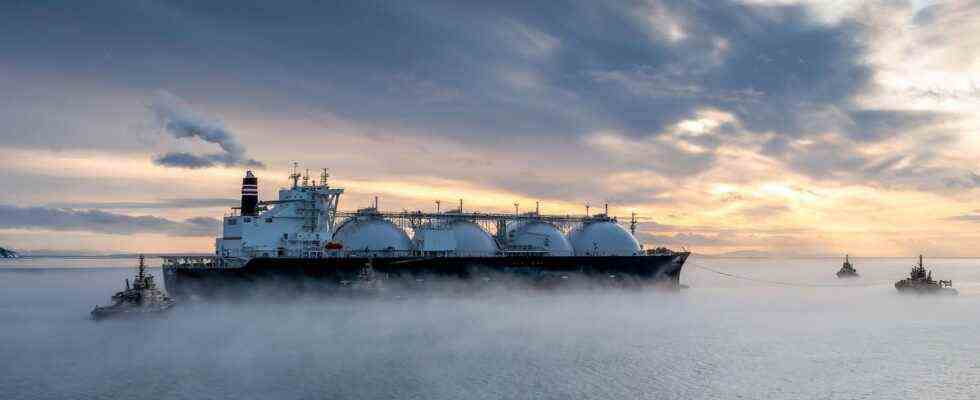The Ukraine crisis shows Germany how dangerous it is to be dependent on Russian gas. But what are the alternatives – not just for this winter?
In view of current events, it seems almost surreal that German politicians very recently pursued a plan to further cement dependence on Russian gas. With a beautiful new pipeline made by Gazprom. Chancellor Olaf Scholz has now officially stopped Nord Stream 2. The pipeline is finished, but will not go into operation until further notice.
Because at least since Putin’s announcement to invade Ukraine, even the biggest German Nord Stream fans have realized that Russia is not a reliable energy partner. But a political opponent who, when in doubt, will not shy away from using gas supplies as a means of exerting pressure to achieve his goals.
This puts Germany in a difficult position, because completely independently of Nord Stream 2, the Federal Republic has become dependent on Russian gas in recent years. 20 million households in Germany heat with gas, industry also needs it and in power generation, where gas currently accounts for about ten percent, the raw material is actually planned for years as a bridging technology for nuclear and coal-fired power. The bottom line is that natural gas currently accounts for around a quarter of Germany’s primary energy requirements. And Russia supplies more than half of it.
Putin sits at the gas tap
But now Germany is worried that Putin might even turn off the gas tap completely in the exchange of sanctions. Given the already escalating situation, Putin should have few diplomatic concerns. The only thing holding him back is concern about his own state coffers, because gas is also Russia’s most important export hit and Germany is its biggest customer.
Most experts think it is unlikely that Putin will put Germany completely on cold turkey, but the situation is uncertain. “If less gas is supplied, Germany can certainly compensate for this. If all fossil energy supplies are stopped, considerable efforts will be required to compensate for this accordingly,” says Claudia Kemfert, energy economist at the German Institute for Economic Research (DIW).
What can Germany do?
In the short term, as helpless as that sounds, Germans have to hope for a quick end to winter and the heating period. Because the conflict with Russia hits the German energy supply unprepared. The German gas storage facilities are currently only about 30 percent full and are therefore significantly emptier than usual at this time of year. This is mainly due to the fact that the Russian state-owned company Gazprom delivered far less gas in 2021 than in previous years, so that the storage levels could only be insufficiently filled in the summer.
According to a study by the Federal Ministry of Economics from 2015, to which the Institute of German Economics refers, a storage level of at least 60 percent is required in February to do without Russian gas for even a month before supply bottlenecks arise. That sounds dramatic. Especially since the other two major natural gas suppliers, Norway and the Netherlands, have signaled that they can no longer deliver to Germany, and the Dutch in the future even less or nothing at all.

Hope for more LPG
The hope that we will not unexpectedly find ourselves in the cold this winter is based primarily on a trend that was not yet taken into account in the study at the time: the sharp increase in the supply of liquefied natural gas (LNG). In liquefied form, natural gas can also be transported by ship and thus compensate for the loss of pipeline gas. Although Russia also supplies LNG, the largest exporter in the world is the USA.
LNG deliveries by the Americans to Europe have recently risen sharply, even if LNG is in principle more expensive than the usual pipeline material. While Germany itself does not have a single port for unloading LNG, there are in the Netherlands and other European countries. “There are enough liquid gas terminals in Europe that Germany can also access,” says DIW economist Kemfert. The federal government is therefore assuming that, if necessary, it would be able to get through the winter without any further Russian gas deliveries.
A strategic gas reserve
But what’s next? The question of dependence on Russia for gas is unlikely to be resolved over the summer, but will come up again next fall. In a recent report, the Institute of German Economics names a number of possible solutions. On the one hand, politicians must ensure that the gas depots are sufficiently filled before the winter months. In addition, a strategic gas reserve, as is also the case with oil, could be held in reserve for acute crises. Economics Minister Robert Habeck has already indicated that he wants to introduce corresponding statutory storage obligations. But that still doesn’t answer the question of where the gas is supposed to come from.
The IW authors see LNG as an important alternative gas source in the years to come. Since Norway cannot deliver much more pipeline gas and the Dutch even want to end their gas production because of the risk of earthquakes, the LNG tankers remain an alternative to the Russian pipelines. In addition to the USA, Qatar and Australia are among the largest LNG producers in the world. However, liquid gas could hardly replace all the gas that Germany purchases from Russia. Because the raw material is also in high demand elsewhere in the world, for example in China, and the capacities can hardly keep up with demand.
Long-term solution Renewable energies
LNG producer Shell is already warning that liquid gas will become increasingly scarce in the coming years due to rising demand. The Belgian think tank Bruegel also states that the European LNG terminals have plenty of free capacity, but it is questionable how much can be obtained. The liquefiers are already producing at full speed and have mostly concluded long-term contracts with customers in Asia.
So it’s good to remember that Germany wants to phase out fossil gas altogether as part of the energy transition. By 2045 at the latest, if Germany wants to be climate-neutral, it will no longer be allowed to use Russian gas. In the long term, the expansion of renewable energies in particular will help to reduce dependence on Russian gas imports, according to the report by the IW economists. Economist Kemfert also agrees: “The best answer to fossil energy wars is the energy transition with an expansion of renewable energies and significant energy savings.”
Swell: Institute of the German economy / DIW / shell / Bruegel

